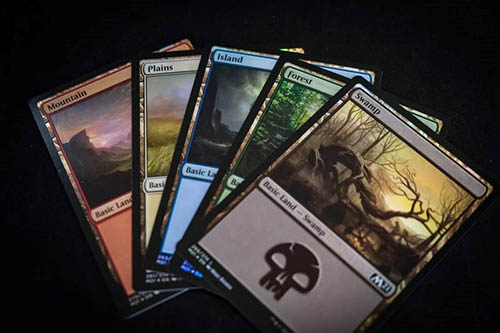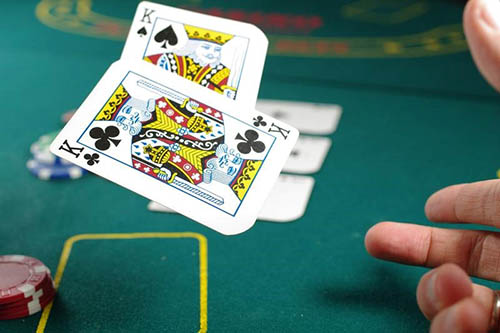
|
| « Articles | History of Playing Cards | Gallery of Playing Cards | Card Games Rules | CONTACT |
Exploring the Impact of Technology on the Modern Card Game Scene
While classic 52-card deck games are still known to all and played by millions worldwide, the modern card gaming scene is very different from what it used to be. By utilizing the space on the average card layout to input text, card games now involve extravagant rules, varied cards, and deck-building. Notably, they also have embraced technology to further the depth of the card games.
Modern card games are making the most of computer programs to expand the offering in an attempt to add more longevity to the title. However, in the embrace of tech and the continued hurry to build and evolve, are modern games actually shortening their lifespan by working in the opposite way to long-established classic card games?
The modern card games entertaining millions

Source: Unsplash
Several card games have deferred from the traditional 52-card deck structure currently populating the gaming space, with some having physical variations and others being purely digital.
The pioneer of the scene was Magic: The Gathering, launching in 1993 as the first trading card game. The online version of the collectible card game boasts a massive player base online, called MTG Online. Since its initial Alpha release, MTG has produced 21 sets, including new editions, reboots, and new core sets, most of which feature new or a different selection of cards for players to use. The game is complicated, with several different rule sets and mechanics to learn and consider. Although, many of them will rarely come into play.
Accompanied by an animated show, novels, films, and video games, Yu-Gi-Oh burst onto the scene in 1996, courtesy of Konami. People became fascinated with it through the show, would go on to buy and duel with the cards on sale, and even play the digital version through various video game consoles. The core game has evolved tremendously over the years, bringing in new mechanics and, of course, hundreds of new cards. The top-selling Nintendo Switch exclusive title Legacy of the Duelist: Link Evolution showcases as much, with each new edition represented by a new storyline to ease players through the years of the card game.
In more recent developments, entirely digital collectible card games have risen to the fore. In 2014, Blizzard created an online card game based upon the lore of their smash-hit PC game, Warcraft. The card game, Hearthstone, quickly became a hit and has since established itself in the competitive scene of eSports. Another is the game Gwent: The Witcher Card Game. Created in Andrzej Sapkowski's novel series The Witcher and brought to life as a mini-game within The Witcher 3: Wild Hunt, developers CD Projekt decided to make it a standalone a digital collectible card game. The spin-off was very well-received and continues to be updated.
The modern games' plight for longevity

Source: Unsplash
Modern card games may involve many complicated rules, new playing styles, and characters from fantasy and fiction, but they still derive from the classics. Playing cards have been widespread since the 14th Century and their enduring longevity extends even to this day. You'd be hard-pressed to find someone who doesn't know the fundamentals of games like rummy, poker, blackjack, new market, or solitaire. But this isn't purely down to them having been in existence for hundreds of years. The fundamental factor behind each of the card games holding such long-standing popularity is their accessibility.
They're all very easy to learn, with the phases of each game being straightforward, but they do require skill and shrewd decision-making to win. The classic card games have proven what it takes to achieve longevity, and it's an aspect that most modern card games miss more and more as they evolve.
Digital card game developers see the path to stable player bases as being regular updates, new inclusions, and an expansion of the rules. However, taking a step in a direction that the players dislike or too many developments too quickly can not only repel existing players but also make the game more difficult for newcomers to adopt. Furthermore, a game's longevity may only last for as long as the player count is high enough. A dip in players can potentially result in a game no-longer being financially viable, causing the developers to stop supporting the game.
Being based digitally with online features has allowed modern card games to be deep in their rules and customizations, reaching new heights in competitiveness. However, it seems inevitable that some will struggle to reach the longevity achieved by the classics due to how often they change-up the content.
|
|
|
|